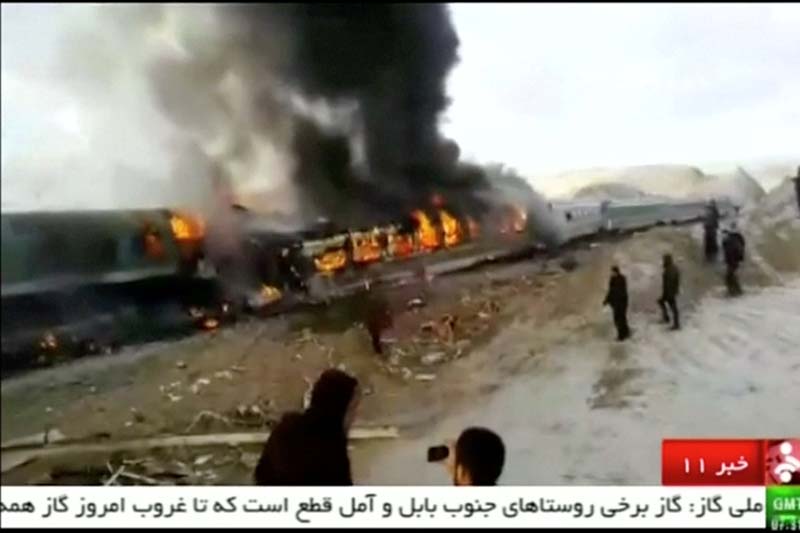Passenger trains collide in Iran, at least 40 killed
ANKARA: At least 40 people were killed and 100 injured when one Iranian passenger train collided with another at a station about 150 miles (250 km) east of the capital Tehran, and the death toll is likely to rise, state television reported.
It said the death toll was likely to rise and that President Hassan Rouhani ordered an acceleration of rescue efforts as well as an investigation into the cause of the deadly crash in the northern province of Semnan.
Video footage showed four derailed carriages, two of them on fire. A spokesman for Iran's Red Crescent, Mostafa Mortazavi, told the semi-official Fars news agency that firefighters were trying to control the blaze.
"I was sleeping when the crash happened. I thought it was an air strike ... When I opened my eyes, there was blood everywhere," a hospitalised passenger said.
Fars quoted Semnan provincial governour Mohammad Reza Khabbaz as saying the death toll was expected to increase. It was not clear how many passengers had been on the trains but Fars said 100 had been rescued.
The semi-official Mehr news agency said four of the dead were railway employees aboard the trains.
Khabbaz told Iranian television it appeared that a train entering the Haft-Khan station on the outskirts of Shahroud ploughed into another that had broken down there.
"The initial investigation suggests that a mechanical failure, possibly caused by cold weather, forced the express train, operating between the cities of Tabriz and Mashhad to stop (at Haft-Khan)," Khabbaz said.
A local official told state TV that the remote location of the crash had slowed rescue efforts. "So far only one helicopter has reached the scene because of access difficulties," said local Red Crescent chief Hasan Shokrollahi.
Iran's rail network aged badly under economic sanctions imposed over its disputed nuclear programme, making it difficult to modernise rolling stock, and safety standards suffered.
The sanctions were lifted in January after Iran reached a deal with world powers to limit its nuclear activity.






